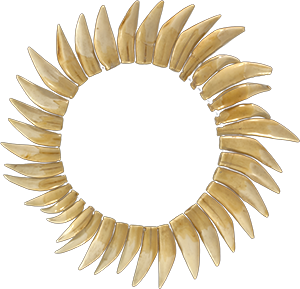
Law
Due to their usage of ayahuasca as a sacrament and the spread of the religion, Santo Daime has found itself the center of Court battles and legal wrangling in various countries.
In Brazil, CONFEN (the Federal Drug Council) has consistently upheld the right of the Daime Church to practice its religion and healing practices using the Daime. A study was made of the Daime by the CONFEN in 1987 which included visits to the various churches and observation of the making of the Daime. It also included study of another group of Ayahuasca users, who call the drink Vegetal (Uniao do Vegetal). The work group which made the study included representatives not only of the CONFEN but also of several other government agencies. The conclusion of the study was that the Daime was a very positive influence in the community, encouraging social harmony and personal integration. The study noted that, rather than simply considering the pharmacological analysis of the plants, it was essential to consider the whole context of the use of the tea — religious, social, and cultural.
In the Netherlands, Santo Daime won a court case in 2001 which allowed them to continue their ceremonial usage of ayahuasca. One factor in this decision was a fax from the Secretary of the International Narcotics Control Board to the Netherlands Ministry of Public Health, stating that [P]reparations (e.g.decoctions) made of these plants, including ayahuasca are not under international control and, therefore, not subject to any of the articles of the 1971 Convention. [1]
In France, Santo Daime won a court case allowing them to use the tea in early 2005; however, they were not allowed an exception for religious purposes, but rather for the simple reason that they did not perform chemical extractions to end up with pure DMT and harmala and the plants used were not scheduled. Four months after the court victory, the common ingredients of Ayahuasca as well as harmala were declared stupéfiants, or narcotic schedule I substances, making the Daime and its ingredients illegal to use or possess. See [2] and [3] (French) for more information.
In the United States, court battles over ritual use of Ayahuasca have mostly been fought by the UDV, and practitioners of the Santo Daime doctrine are watching these events closely. So far, UDV has been able to continue practicing legally thanks to Supreme Court decisions that soundly rejected attempts by the government to prohibit it. see [4] for more information.
The most recent decision came in Italy in 2006; an eight month long investigation had led to the arrest of 24 Italian Santo Daime members in early 2005, but the May 2006 ruling found that no sufficient evidence had been presented to demonstrate that the church members had broken Italian law.




